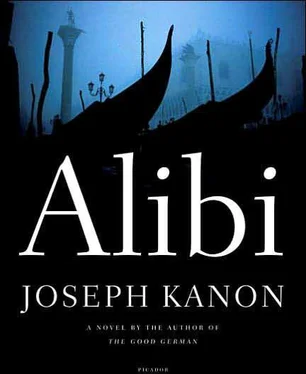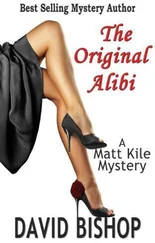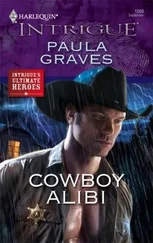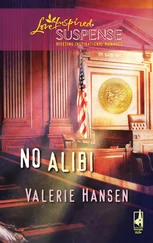Joseph Kanon - Alibi
Здесь есть возможность читать онлайн «Joseph Kanon - Alibi» весь текст электронной книги совершенно бесплатно (целиком полную версию без сокращений). В некоторых случаях можно слушать аудио, скачать через торрент в формате fb2 и присутствует краткое содержание. Жанр: Триллер, на английском языке. Описание произведения, (предисловие) а так же отзывы посетителей доступны на портале библиотеки ЛибКат.
- Название:Alibi
- Автор:
- Жанр:
- Год:неизвестен
- ISBN:нет данных
- Рейтинг книги:3 / 5. Голосов: 1
-
Избранное:Добавить в избранное
- Отзывы:
-
Ваша оценка:
- 60
- 1
- 2
- 3
- 4
- 5
Alibi: краткое содержание, описание и аннотация
Предлагаем к чтению аннотацию, описание, краткое содержание или предисловие (зависит от того, что написал сам автор книги «Alibi»). Если вы не нашли необходимую информацию о книге — напишите в комментариях, мы постараемся отыскать её.
Alibi — читать онлайн бесплатно полную книгу (весь текст) целиком
Ниже представлен текст книги, разбитый по страницам. Система сохранения места последней прочитанной страницы, позволяет с удобством читать онлайн бесплатно книгу «Alibi», без необходимости каждый раз заново искать на чём Вы остановились. Поставьте закладку, и сможете в любой момент перейти на страницу, на которой закончили чтение.
Интервал:
Закладка:
Claudia looked at her.
“It’s the same people. Shoot.”
But it was Rosa who shot, taking her time, careful, then smiling when she heard the ping of metal, glass smashing, and the light suddenly went out. Another burst of gunfire hit the water next to us. I could hear yelling on the boat behind, confusion. Our one second chance. It didn’t matter where the back canals went. If we stayed here, we’d be killed.
I pushed the tiller hard and the boat veered left, heading straight for the nearest canal. A high bridge, dark water behind, only a few streetlights after the Riva. It was only after we’d passed under the bridge that I saw the tall brick towers at the end of the rio, the crenellated walls stretching out from the water entrance. The Arsenale, the republic’s old shipyard, silent now for years. Navy property, but not locked-a vaporetto route went through it, past the walled-in docks and out the other end, a shortcut to the northern lagoon.
I looked behind us. The police had seen the turnoff, were now racing toward the bridge at the rio entrance. Only the usual boat lights, no more beacon. In the Arsenale it would be almost pitch-dark, just a few corner lamps for night watchmen. Nothing came through here but the vaporetti. And nothing got out, if you stopped up either end. I tried to remember its shape from the map-a box of water surrounded by warehouses and ships’ works, a rio out in each direction, not completely hemmed in. A connecting boatyard to the right, a longer way out, but an alternative. Unless the navy had closed it off. If they were here at all. What ships were left would be in Taranto. Nothing had been built here since the first war. The foundries, the ropemakers, were all just memories, something to mention to tourists as they sailed through. A deserted factory on water. And a trap if we couldn’t make it through.
I had decided to head right, toward the connecting boatyard, when I heard the shot behind us. Close enough to shoot again. Someone leaned out of one of the tower windows, shouting. Guarded after all. But what were they guarding? In a moment I saw. I made an abrupt turn after the towers, hoping for a clear path to the other boatyard, and instead found myself surrounded by ghost ships. The Arsenale was dotted with yellow fog lights, everything shuttered, the docks lined with rusting, pre-Mussolini warships. A ship graveyard, clotted enough to obscure the opening to the adjoining basin. But now it was too late to head back to the lagoon. I could hear the police boats, already at the entrance towers. Still, we’d have to try. Nobody would stay in a bottleneck. But that’s what they would think too.
I turned the boat once more. An old warship lay almost listing against the dock, its wide middle close enough to board by jumping but its tapered bow and stern sitting out in the water. I made another quick turn, almost fishtailing, then cut the motor behind the stern, bobbing in a narrow slot of water between the rusting hulk and the stone walls of the dock. The boat rocked, and I grabbed a rope from the dock to hold us steady until our wake had subsided. Then I pulled us farther in, making sure the boat didn’t stick out past the warship’s stern. A hiding hole, dark. Nothing to see but rusting steel.
Everything now was sound-the motors of the police boats shifting gears, idling while they looked around; footsteps running past the workshops, presumably the guard from the tower; shouts out to the water, unintelligible but excited, wanting to know what was going on; the creaking of ships pulling against ropes. I looked up. The warship was secured to keep any movement to a minimum, ropes stretched taut from stern to dock, probably the same at the bow. But that didn’t mean it couldn’t move, the water churned up by the police boats rocking the stern just enough to push it closer to the dock, crushing us. The others were looking at it too, their eyes fixed on the old metal, watching it as if they were waiting to put up their hands to stop it coming closer. No one spoke. Rosa leaned down, putting her head next to Moretti’s, ready to cover his mouth if he made a sound. On the water the boats had come together, their motors in the same place, conferring. But they were running out of time. If they searched the Arsenale and found nothing, they’d lose any advantage on the open water.
I heard the boats shift gears, separating. But which way would we have gone? The northern outlet, toward Murano, or the longer Arsenale basin? The directions were opposite-a wrong guess meant we’d get away. Then one motor got fainter, moving toward the lagoon, and the other seemed almost on top of us, someone yelling one more thing to the guard before it passed by the stern of our ship and then to the next basin. Finally, Rosa’s reverse play, the police off in all directions except the one I intended to use, back to where I had started.
We waited another minute to make sure the police had really gone, then edged our way out from behind the warship. For a moment I thought of just drifting with the oars, slipping past the guard in silence, the way we’d gone down the Fornace. But we were running out of time too, every second crucial if we wanted to get out before the police realized they were chasing shadows. What could the guard do, call out the navy? Mothballed in Taranto, the last scraps of Mussolini’s war. I started the engine and swung around the big stern.
The guard may have seen the boat, but none of us looked back, just headed straight down the canal to the open water. We had a real chance now. To catch up, the police would have to go all around the tail end of Venice, skirting San Elena, minutes behind. We passed under the bridge and shot across the water toward the channel lights. I peered into the darkness, trying to measure how far I could see past the buoys before everything was swallowed up. Still no moon. We wouldn’t need to hide behind anything-the air itself would do it if we were outside the range of the lights. But it was a fine line; too far and you risked shallows.
“Is he okay?” I said to Rosa. “It gets choppier out here.”
She didn’t say anything, just held him, a cushion.
“Where is the car? The casino?” The big parking lot at the vaporetto landing stage, where it would be easy to be overlooked in the crowd.
“No, at the end. The Excelsior.”
“The Excelsior?”
“It’s not open yet. No one will be at the dock. It’s easy to find.” All worked out, the next link.
“Not in the dark. We’ll have to go to the casino and then follow the lights down.”
“No, go straight across. That was the idea. No one will see us.”
“You can’t cross the lagoon in the dark. That’s why they mark the channels.”
“It’s a shallow boat.”
But the lagoon could be even shallower. That was what had always protected Venice-not water but mud. Sometimes only a few feet under the surface, sometimes less, rising in little underwater islands.
“We can’t go at this speed. If we hit something, we could wreck the boat.”
“If they come for us, they’ll look in the channel,” she said.
I nodded. “All right. But it’ll take more time. Can he wait?”
He was lying still under the tarp, maybe passed out.
“Yes,” she said. “Now.” I looked at her face, suddenly soft. “He’s dead.”
“Oh,” Claudia said, a whimper.
“Are you sure?”
Rosa pulled back the tarp, as if seeing him, his perfectly calm face, would be evidence. “In the Arsenale. I didn’t want to say then.”
We were still moving slowly in a direct line to the far lights of the Lido. I looked around, checking for boats, then back at his face, streaked with blood where he had wiped it, sweating, a kind of camouflage effect in the dark. A boy who’d delivered medicine.
Читать дальшеИнтервал:
Закладка:
Похожие книги на «Alibi»
Представляем Вашему вниманию похожие книги на «Alibi» списком для выбора. Мы отобрали схожую по названию и смыслу литературу в надежде предоставить читателям больше вариантов отыскать новые, интересные, ещё непрочитанные произведения.
Обсуждение, отзывы о книге «Alibi» и просто собственные мнения читателей. Оставьте ваши комментарии, напишите, что Вы думаете о произведении, его смысле или главных героях. Укажите что конкретно понравилось, а что нет, и почему Вы так считаете.












